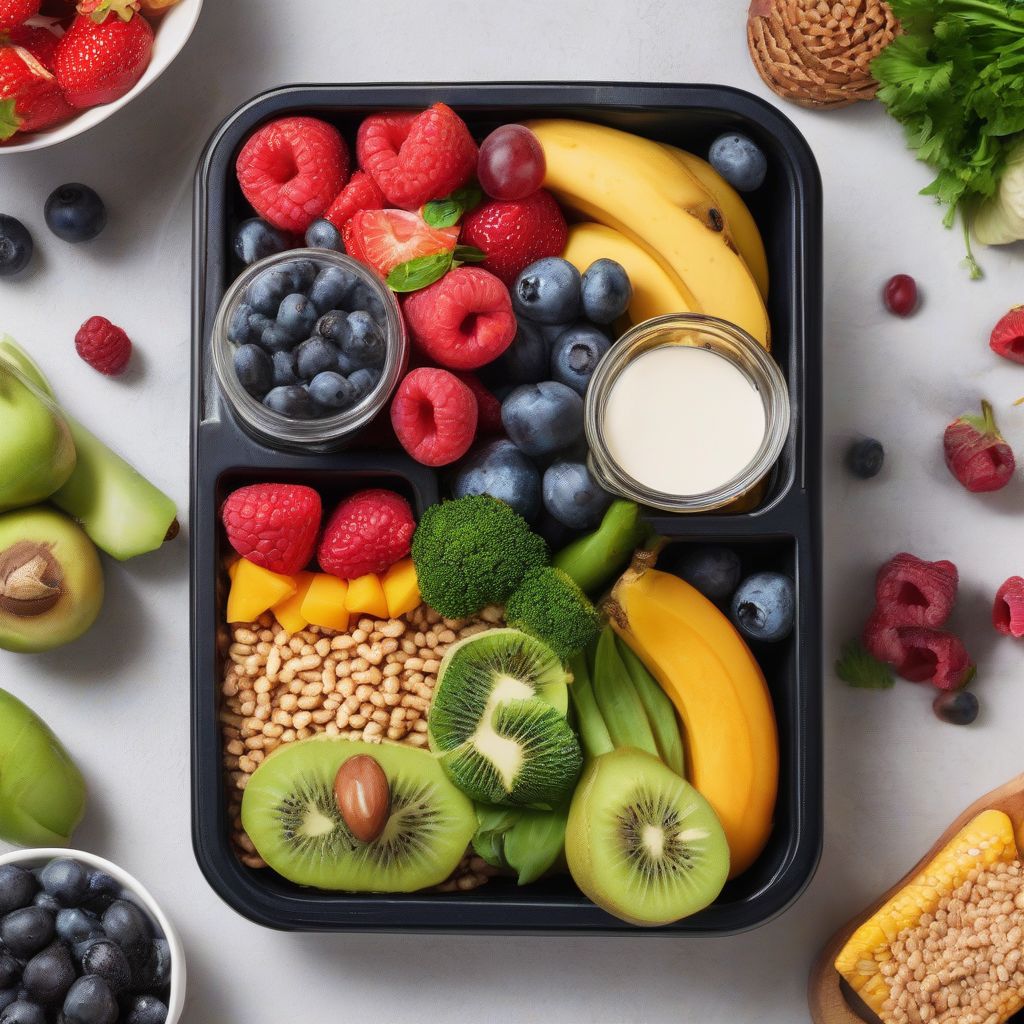“A healthy outside starts from the inside.” This age-old adage rings truer than ever when striving for weight loss. You dream of fitting into that special outfit, feeling more energetic, or simply improving your overall health. But the journey often feels paved with confusing diets and unsustainable restrictions. That’s where the power of a well-structured weight loss meal plan comes in. It’s not about deprivation, but rather a sustainable approach to nourishing your body while achieving your goals.
Understanding Weight Loss Meal Plans
Weight loss meal plans are structured eating guides designed to help you reduce calorie intake, create a calorie deficit, and ultimately shed pounds. They take the guesswork out of healthy eating by providing a clear roadmap of what to eat, how much to eat, and when to eat.
But remember, not all meal plans are created equal. Effective weight loss meal plans go beyond simply cutting calories. They prioritize:
- Nutrient Density: Focus on whole, unprocessed foods packed with vitamins, minerals, and fiber to keep you feeling full and satisfied. Think fruits, vegetables, lean proteins, and whole grains.
- Portion Control: Provides specific portion sizes to help you understand appropriate intake and prevent overeating.
- Variety and Flexibility: Incorporates a wide range of foods to keep your taste buds engaged and make the plan enjoyable long-term.
- Sustainability: Fits seamlessly into your lifestyle and food preferences, ensuring you can stick with it for the long haul.
The Benefits of Following a Weight Loss Meal Plan
- Simplified Weight Loss: No more calorie counting or agonizing over food choices. A well-designed plan eliminates the guesswork, making healthy eating easy and convenient.
- Improved Eating Habits: Promotes mindful eating and helps you develop a healthier relationship with food.
- Increased Energy Levels: Nutrient-rich foods provide sustained energy throughout the day, banishing those dreaded afternoon slumps.
- Reduced Health Risks: Weight loss can lower your risk of chronic diseases like type 2 diabetes, heart disease, and certain types of cancer.
- Enhanced Mood and Well-being: Eating nutritious foods can positively impact your mental health, boosting mood and reducing stress.
Key Components of a Successful Weight Loss Meal Plan
- Calorie Control: Determining your daily calorie needs based on your individual factors like age, gender, activity level, and weight loss goals.
- Macronutrient Balance: Finding the right balance of protein, carbohydrates, and healthy fats to optimize satiety, energy levels, and overall health.
- Fiber Power: Prioritizing fiber-rich foods like fruits, vegetables, legumes, and whole grains to promote digestive health, regulate blood sugar, and keep you feeling fuller for longer.
- Hydration Station: Drinking plenty of water throughout the day to support metabolism, curb cravings, and promote overall well-being.
Common Misconceptions About Weight Loss Meal Plans
Myth 1: Meal plans are restrictive and boring.
Reality: The beauty of meal planning lies in its adaptability. You can customize your plan to include your favorite foods and explore new, healthy recipes.
Myth 2: Meal plans are expensive and time-consuming.
Reality: Planning your meals can save you money in the long run by reducing food waste and unnecessary takeout orders.
Myth 3: Meal plans are only for people with strict dietary needs.
Reality: Whether you’re following a specific diet like keto or simply aiming to eat healthier, there’s a meal plan out there for you.
Creating Your Personalized Weight Loss Meal Plan
- Consult a Professional: Seek guidance from a registered dietitian or nutritionist to develop a safe and effective plan tailored to your needs and preferences.
- Set Realistic Goals: Aim for gradual, sustainable weight loss of 1-2 pounds per week.
- Plan and Prep: Dedicate time each week to plan your meals, make a grocery list, and prep ingredients in advance to set yourself up for success.
 Healthy Weight Loss Meal Plan
Healthy Weight Loss Meal Plan
Tips for Sticking to Your Meal Plan
- Find Your Why: Remind yourself of your motivations for losing weight and the positive impact it will have on your life.
- Be Prepared: Pack healthy snacks and meals to avoid derailing your progress when hunger strikes.
- Practice Mindful Eating: Slow down, savor each bite, and pay attention to your body’s hunger and fullness cues.
- Celebrate Small Victories: Acknowledge and celebrate your progress along the way to stay motivated.
[amazon bestseller=”weight loss meal prep”]
Conclusion
Embarking on a weight loss journey can feel daunting, but remember you don’t have to navigate it alone. A well-structured weight loss meal plan empowers you to take control of your health, make sustainable changes, and achieve lasting results. By prioritizing nutrient-dense foods, practicing portion control, and staying consistent, you’ll be well on your way to reaching your goals and living a healthier, happier life.
Have you tried a weight loss meal plan before? Share your experiences and tips in the comments below!
